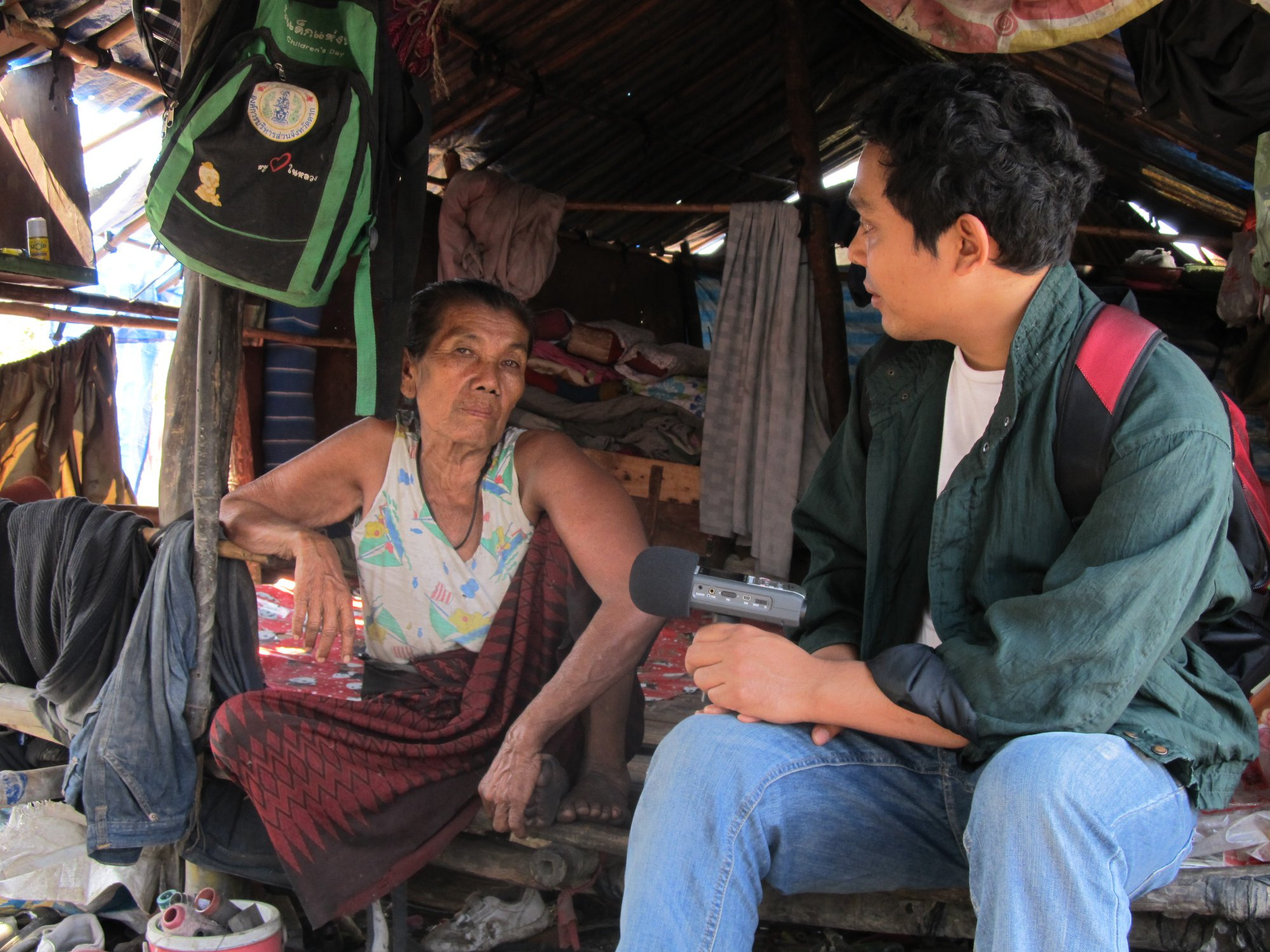
Burmese Migrants: Are They Going Home Soon? Saturday, 21 January 2012 09:35 Nay Thwin
Burma has one of the largest natural gas reserves in the world, as well as other minerals. It is also rich in timber, agricultural products and precious stones.
But Burma is among the poorest countries in South East Asia with almost one third of its 50 million people living in poverty.
This situation has forced more than four million Burmese across the boarder into Thailand, where they do low paid work.
Nay Thwin went to visit them in the border town of Mae Sot to find out if the political reforms taking place in Burma would entice then to come home.
I am driving to the Maepa rubbish dump, only a few kilometers outside Mae Sot.
This dump is home to hundreds of illegal Burmese migrants who have been eeking out a living here for years.
A group of barefoot children are playing near a mountain of rubbish.
Dogs and pigs sleep amongst make-shift homes made from bamboo and plastic sheets.
In one of the huts lives 70-year old Daw Mya along with six other people.
―I am a grandmother of five. They all work here but we earn just enough to survive. They earn around 30 US dollars a week, and all the money goes for rice, cooking oil and to pay back some debts. So we have no extra money. I want to go home but I think it may be worse in Burma because I am too old to work on a construction site. Here I am just cooking for the kids.‖
Like many of the migrants here Daw Mya is from southern Burma.
They have been living in Thailand illegally for one year.
They survive off donations from wealthy individuals who give them rice, blankets and drinking water.
60-year old Saw Al Htoo is washing his shirt in a public well near his hut.
He has been living here for 10 years and earns 2 dollars a day selling plastic bottles and some recycled iron.
He misses Burma but says he would be worse off there.
―If I go back home, I have to be a labourer at someone else‘s farm because I don‘t have my own farm. Maybe I will work in a bean plantation just like before I moved here.‖
There are no family planning programs here and people get married young and soon after have children.
30-year-old Ko Thein Hla has six children. He is from the business capital Rangoon.
―Since I have a big family, it‘s difficult to survive. We were planning to have two or three kids, but now we have six. And we have to bring them all. They‘re our blood, aren‘t they?‖
His wife Ma Cho was a street vendor in Rangoon but she says life was hard there.
―There are many difficulties in Burma. We have no home there, so we have to rent one. All the money we have will go for the house, electricity and water bill. Life will be very difficult. To rent a house, we need some money for the deposit.‖
They listen to the Government radio every day.
They are hearing that since the military handed over power to a nominal civilian government, there has been plenty of reformist rhetoric and some action - including calls for peace with ethnic minority groups, easing of media controls and the release of some political prisoners.
Ma Chos says she has also heard that the economy is improving.
―I heard in the radio news that Burma now has a better social and economic condition, as reported in government radio. I have no TV, only radio and I listen to it every day. I already want to go home; it‘s our home, where we belong. I want to go back; I want to die in my own country.‖
On my way back, I hear a very familiar government slogan from a radio inside one of the bamboo huts.
It says that the Burmese economy must be developed based on agriculture.
And that the state and the people are responsible for improving the economy.
But the Burmese economy is plagued by inefficient government policies, corruption and chronic rural poverty.
Industries such as tourism have not been developed to their full potential and many analysts say that Burma's economic picture won't improve until it becomes more welcoming to businesses.
Burmese economist Dr. Myo Aung Kyaw is the managing director of Pioneer Post Harvest Development Group.
―The government should open up the market so that farmers will get better prices for their crops. This will act as an incentive for farmers to produce more. The government will need to empower the farmers as well helping them get access to the latest technology, seeds and fertilizer—that‘s essential.‖
Although small steps have been taken, there is a long road ahead for Burma to start capitalising on its vast potential, and for the benefits to start trickling down to the poorest of the population.
Until that time thousands of Burmese migrants will stay in neighbouring Thailand.
Post a comment